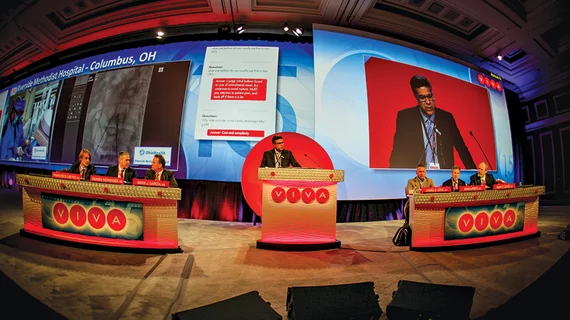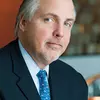Data Drought: The Struggle to Build Evidence in Vascular Medicine & Intervention
Despite the increasing prevalence of peripheral artery disease (PAD) around the world (Lancet 2013;382:1329-1340), the impact of PAD on survival and quality of life (Glob Heart 2014;9:145-158) and the expanding prevalence and impact of venous thromboemboli on the population at large (Eur Heart J 2014;35:2855-2863), there is little doubt that physicians will continue to be challenged by the diagnostic and management conundrums facing these complex patients.
The vast explosion of minimally invasive catheter-based technologies for the treatment of arterial and venous thromboembolic diseases has offered novel approaches for our patients. However, the clinical science supporting specific strategies is seriously lacking, and many studies have been performed solely for regulatory approval. This limited trial data does not assist the practicing clinician in deciding optimal therapies for individual patients.
The field of vascular medicine and intervention has historically demonstrated unhealthy competition among specialties about whose practitioners have the greatest expertise and capabilities to manage patients. This competition has led to a nonproductive environment that not promoted improved data for clinical decision making; rather, it has resulted in vertical silos of competitive behavior.
Stakeholders who have an interest in promoting optimal health for patient populations have recently identified vascular disease as an important area of focus. During the Medicare Evidence Development and Coverage Advisory Committee (MEDCAC) meeting focused on PAD in July 2015, the Centers for Medicare & Medicaid Services (CMS) made it clear that interventions for PAD in Medicare-eligible patients have limited scientific support and that this relative void is a subject of intense interest to them. During the MEDCAC meeting, an unusual event occurred: seven separate professional medical groups with interest in patients who have vascular diseases came together and organized a series of coordinated presentations. These organizations included the American College of Cardiology, American College of Radiology, American Heart Association, Society for Cardiovascular Angiography and Interventions, Society for Interventional Radiology, Society for Vascular Medicine and Vascular InterVentional Advances (VIVA Physicians). Each organization was responsible for addressing one of the questions posed by the MEDCAC panel. Although the focus of each presentation was slightly different, the theme was consistent: the impact of PAD on Medicare-eligible patients largely due to systemic atherosclerotic risk, premature death and reduction in quality of life.
VIVA Physicians, a 501(c)3 not-for-profit physician organization, was founded in 2002 to provide comprehensive, state-of-the-art, cutting-edge education in the field of vascular medicine and intervention. The annual VIVA Symposium attracts more than 2,000 attendees whose specialties span vascular medicine and intervention. The VIVA Physicians Board of Directors is multidisciplinary, composed of interventional cardiologists, vascular surgeons, vascular interventional radiologists and vascular medicine specialists. At the 2015 annual meeting, 16 late-breaking clinical trials were presented over two days, highlighting not only the focus of the meeting but also the expansion of data being generated in the field.
VIVA has worked closely with U.S. government agencies, including the FDA and CMS to advocate on behalf of patients. In April 2016, VIVA Physicians will host the first Vascular Leaders Summit. The event will bring together physicians, government representatives, patient advocates and industry sponsors to Washington, D.C., to discuss critical issues in vascular medicine and intervention.
When looking at the challenges facing patients with vascular disease in the next decade, VIVA plans to fulfill its mission to educate the next generation of vascular specialists; to expand our knowledge base; to innovate new strategies for treatment of vascular disease; and to advocate for our patients, whose interests remain clearly in our crosshairs.
Michael R. Jaff, DO, is a member of the VIVA Physicians Board of Directors. He is also Medical Director of the Fireman Vascular Center and the Paul and Phyllis Fireman Endowed Chair in Vascular Medicine at Massachusetts General Hospital and Professor of Medicine at Harvard Medical School, both in Boston.

